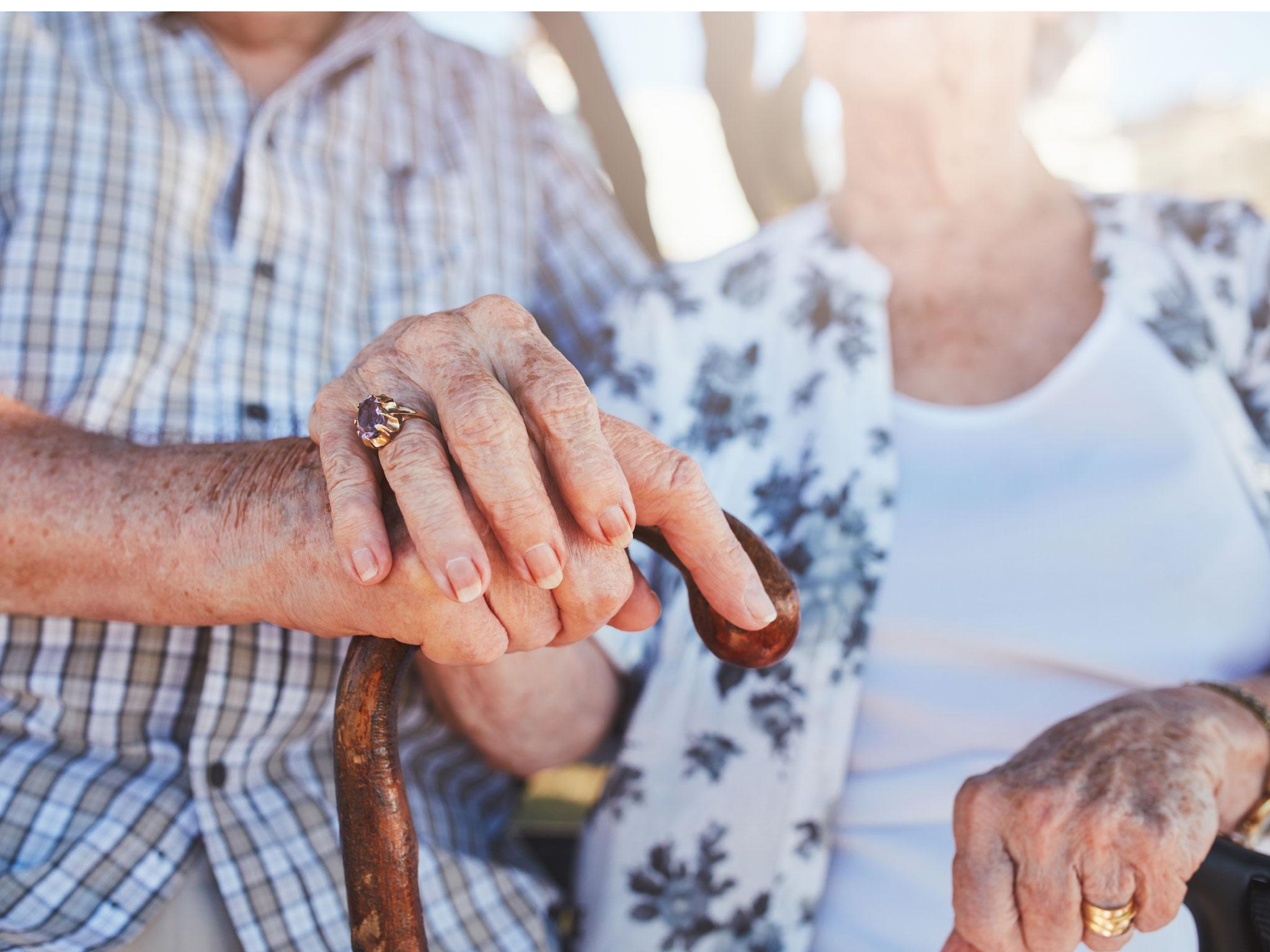UK risks becoming 'sick man and woman of Europe' as life expectancy stalls
'This is a new and worrying tend', finds author

The UK is becoming the “sick man and woman of Europe” as life expectancy dwindles for Brits while increasing in other countries, a new analysis shows.
Sir Michael Marmot, director of the Institute of Health Equity at University College London, is demanding an urgent inquiry into why, after increasing steadily for decades, life expectancy has almost ground to a halt.
In the UK, female life expectancy at birth is 83, below the EU average, while for men it is slightly above the average at 79.
Sir Michael, who authored the government-ordered report on health inequality, wrote in The Times: “Were this to keep up, we would soon become the sick man and woman of Europe. This is a new and worrying trend.”
Until 2010, Britons were gaining an extra year of life expectancy almost every four years, but since then – just two years after the crash and coinciding with the start of the coalition Government and sweeping austerity measures – the rise has all but ground to a halt.
Sir Michael has written to Health Secretary Jeremy Hunt urging him to set up an inquiry into the slowdown, saying that when searching for an explanation, “austerity is an obvious candidate”.
He concluded that while life expectancy has slowed across all countries since the global financial crisis which began in 2008, it has been “particularly marked and pronounced in the UK”.
Growth in female life expectancy at birth is now the worst in Europe for British women, and the second worst for men.
Some experts have argued that life expectancy could be reaching its natural limit, but Sir Michael makes clear he does not accept this.
Use your noodle: The real Chinese diet is so healthy it could solve the West's obesity crisis
Show all 2Female life expectancy of 83 at birth in the UK is now slightly below the EU average and below almost all of western Europe. For men, at 79, it is slightly higher than the EU average but still lags behind seven countries where it is above 80.
Sir Michael concedes there could be factors other than austerity at work, however, as countries which have suffered harsher cuts to their health services, including Spain, Greece and Portugal, are all doing better than the UK in terms of their life expectancy improvements.
Germany – a country where the economy has remained buoyant in the face of the financial crisis – has also suffered a stalling in life expectancy.
Health experts have for years been pointing to the obesity crisis in the UK as likely to be responsible for stalling and potentially reversing the steady increase in life expectancy.
The Department of Health said in a statement: “Health inequality is a challenging and complex area – deeply rooted, difficult to turn around and driven by a variety of factors.
“Despite widespread variation, smoking rates are at an all-time low and cancer survival rates at a record high.
“We are investing more than £16 billion in local government services over the current spending period to help tackle public health issues, in addition to free NHS health checks, screening programmes and funding for campaigns such as Be Clear on Cancer.”
Subscribe to Independent Premium to bookmark this article
Want to bookmark your favourite articles and stories to read or reference later? Start your Independent Premium subscription today.

Join our commenting forum
Join thought-provoking conversations, follow other Independent readers and see their replies